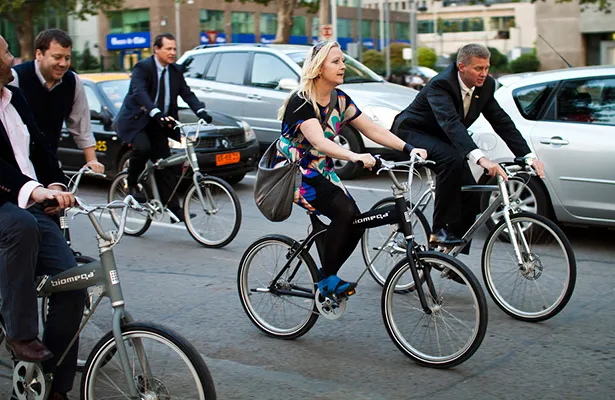Copenhagen.- Calle and avenues perfectly traced and tidy with wide spaces for the passage of bicycles, stand out when they arrive in Copenhagen, the capital of Denmark.
Given the most common and efficient route to transport in this city, added to a food rich in vegetables, species and proteins, few might think that behind the slender figure of the Danes also there is diabetes disease.
Although so far it is only 25 thousand people with this condition, of a total of 580 thousand that file the capital of the country, the figure is expected to increase, according to Ninna Thomsen, Mayor of Health and Medical Care of Copenhagen.
"Diabetes is a very serious disease and is increasing by alcohol consumption in young people, as well as by aging the population, a problem that already faces much of the world," he said.
Despite this, the health model in Copenhagen is an example for specialists, doctors and authorities from other countries that visit the city every year, to adopt and replicate its promotion and prevention programs in their respective nations.
"It implies for example an investment that has been done for 20 years for people to have a healthy life with aspects such as the creation of more lanes or cycle paths so that they continue to prefer the bicycle to transport."
Thomsen also said that encouraging healthy exercise and food, in schools and parks, as well as campaigns to reduce alcohol and cigarette consumption, are part of the day's tasks to eradicate the disease.
“We are looking for new ways to address this disease and we hope to exchange knowledge with other countries.We believe that a health service implies that you can go to any hospital, that is to speak equality and here we are doing it, ”said the mayor in front of a delegation of Mexican doctors.
A few days ago, the Government of Mexico signed a Cooperation Agreement in Diabetes with the University of Copenhagen and the University Hospital of Odense, in order to train, online and face -to -face mode, Mexican personnel in the detection and treatment of the disease.
Among the collaborators, the Danish pharmaceuticals Novo Nordisk participate, which will facilitate the agreement in alliance with the University of that city.
"The issue today is that we all have to cooperate to reduce this disease that will undoubtedly continueNovo Nordisk Relations.
After a visit to the production plant, the corporate vice president of the pharmaceutical company also regretted that by 2040, the number of people with diabetes in the world will be more than 642 million.
"This means that we will not stop having work in the manufacture of medications, however, it is not what we really want and that is why we spread the consequences of the disease and continue working all to find the best way to solve it."
The city with the highest number of bicycles in the world, only in dispute every year with Amsterdam, the Netherlands, is the seat of various activities around health, in order to exchange experiences that contribute to the treatment and prevention of diabetes.


